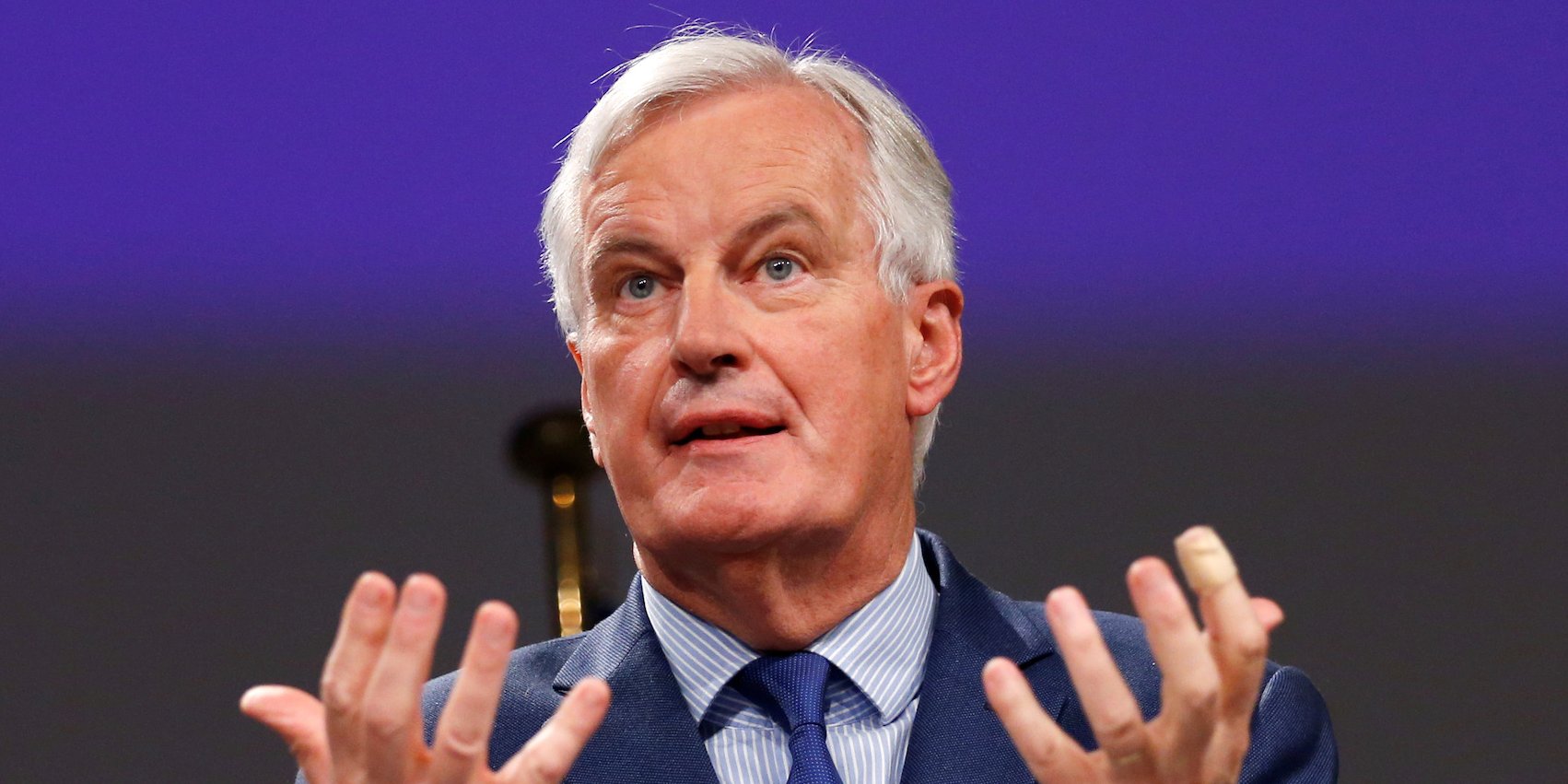 The EU’s chief Brexit negotiator Michel BarnierFrancois Lenoir/Reuters
The EU’s chief Brexit negotiator Michel BarnierFrancois Lenoir/Reuters
- The EU’s chief Brexit negotiator Michael Barnier has ruled out the prospect of a trade deal which includes services unless Britain remains in the single market.
- “In leaving the single market, they lose the financial services passport,” said Barnier.
LONDON — The EU’s chief Brexit negotiator ruled out a free trade deal with Britain which includes financial services unless Britain remains in the single market, dealing a significant blow to the government’s aim of securing a bespoke Brexit trade deal.
Speaking to newspapers including the Guardian, Michel Barnier said: “There is no place [for financial services]. There is not a single trade agreement that is open to financial services. It doesn’t exist.”
Barnier said the result would be a consequence of “the red lines that the British have chosen themselves. In leaving the single market, they lose the financial services passport.”
A failure to organise a deal including services could be catastrophic for Britain’s financial services sector, which depends on the European financial passport for much of its trade.
The passport is a set of rules and regulations which allow UK-based finance firms to trade with and sell their services into Europe.
Brexit secretary David Davis last week said the UK can have a “Canada plus plus plus” trade deal with the EU after Brexit. It would involve “Canada plus the best of Japan, the best of South Korea and that the bit that is missing, which is the services,” Davis said.
Despite that, no non-EU member state has ever negotiated trade terms with the EU that extends to financial services.
Barnier also said that Britain must accept the EU’s “complete architecture” — including all directives and rules introduced when Britain no longer has a say in the EU decision-making process — as part of any transition deal.
He said: “The same rules for everyone – this is the spirit of the transition.”
That would mean the UK retains freedom of movement, the Common Fisheries Policy, and a role for the European Court of Justice for a two-year period.
The move is likely to infuriate pro-Brexit cabinet ministers, who reportedly baulked on Monday at Theresa May’s calls in parliament for a “status quo” transition deal.













